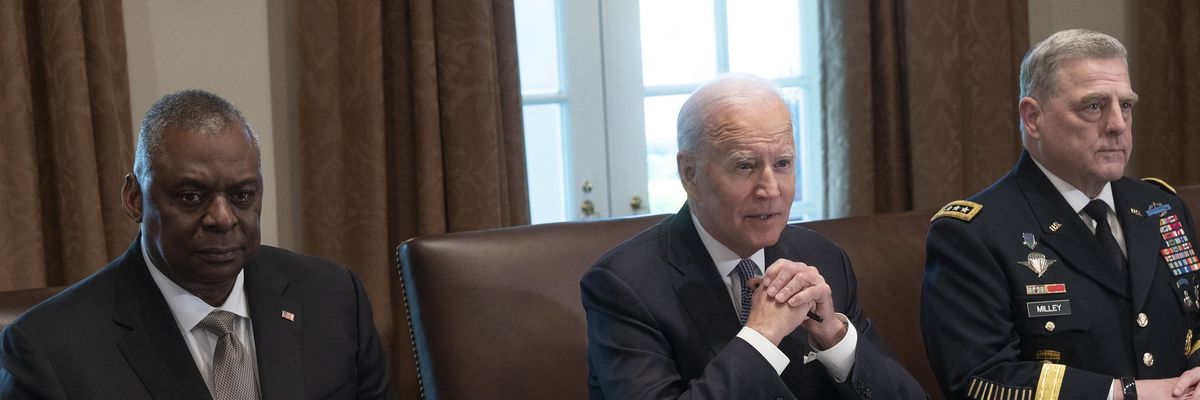Since the new Congress took over in January, Republican lawmakers have been fighting to establish a special inspector general for Ukraine aid. The proposal — modeled on the special IGs for Afghanistan and Iraq — has slowly gained momentum as the war has settled into an apparent stalemate, signaling the possibility of a long and expensive conflict.
The idea earned a boost last month when Rep. Matt Gaetz (R-Fla.) added a provision to an annual defense bill that would authorize funding for a Ukraine oversight office. Gaetz’s amendment made it through the House Armed Services Committee, and the Appropriations Committee approved funding for a special IG in a parallel bill. So the proposal is now poised to make it through the House, barring a significant twist in the amendments process.
But a major stumbling block remains. In a statement from the White House Office of Management and Budget, the Biden administration said it wants the provision removed, setting up a fight when the House and Senate versions of the National Defense Authorization Act go to conference later this year.
The White House argued that current oversight efforts — which include a joint plan from several inspectors general — are already more than enough, citing “multiple investigations regarding every aspect of this assistance — from assessing the processes for developing security assistance requirements to evaluating the end-use monitoring processes for delivered assistance.”
But others are not so sure. John Sopko — the long-time Special Inspector General for Afghanistan Reconstruction — slammed the administration’s approach to Ukraine aid oversight in an interview with RS earlier this year.
“This is the problem of the three IGs. They can come up with a way to coordinate their work, but the DoD IG cannot look at State programs. The State IG cannot look at AID programs,” Sopko said. “They’re going to try their best, but I think there’s something like 14 or 17 separate U.S. oversight bodies. So you got 17 of those, plus you have like 50-some countries involved, and each one of them has an oversight body. I mean, this is like herding cats.”
“You just can’t spend that much money that fast without having money being diverted and weapons being diverted,” he added. “We are naive if we think just because it’s a noble cause there won’t be corruption.”
It remains unclear whether Sopko’s arguments will prove persuasive to the Senate, which voted down previous efforts to establish a special Ukraine watchdog from Sens. Josh Hawley (R-Mo.) and Rand Paul (R-Ky.).
But persuasion may not matter in this case. In recent years, the president and congressional leaders have largely negotiated the final NDAA behind closed doors after a version of the bill passed the House and Senate. Given the importance of consistent funding for the military, the draft agreed by leadership has generally gotten a quick rubber stamp from each chamber.
In other words, the proposal’s success largely hangs on whether House Speaker Kevin McCarthy (R-Calif.) is willing to fight for it. McCarthy has previously expressed support for expanding oversight of Ukraine aid. But only time will tell if he is ready to battle the White House to get it.
















